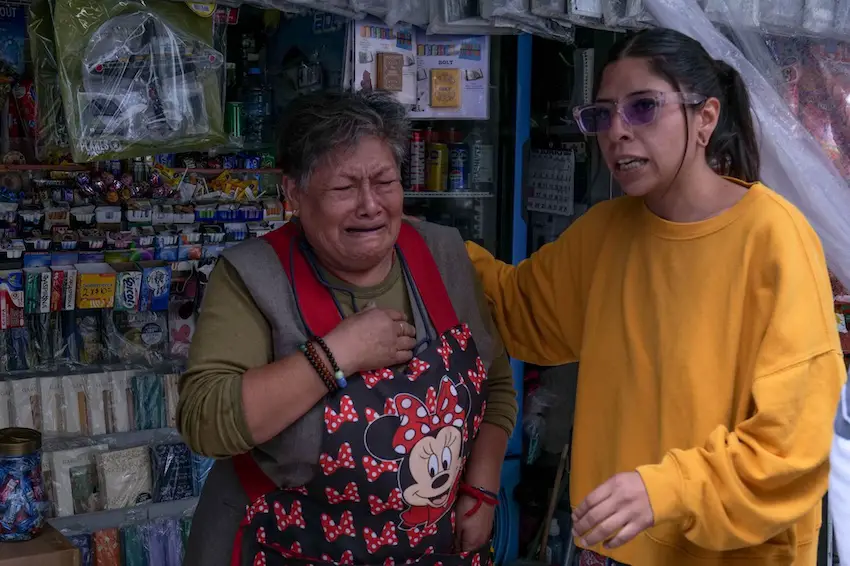Mexicans are famous for their polite social graces and good humor. Unfortunately, they’re also known for a strong aversion to saying “no,” or saying anything negative at all.
But what one sees as polite omission, another might take as flat-out lying. Being polite while also communicating what you mean can be a tricky balancing act, it’s true. And for those of us from more direct cultures, it’s downright opaque. Why would someone just not say what they mean?

Nothing is as simple as it seems, I suppose. Still, there are plenty of recognizable broad strokes we can examine here.
A lesson in keeping the negative to yourself
An impressive example of this tendency came years ago when I lived in Querétaro. I’d been working at a language school then — the kind that says they’ll help with immigration papers but never do. It was someone’s birthday, and teachers and students alike all went out to a bar to celebrate. It was a good time!
The next day, the director of the school told us teachers that one of the students wouldn’t be coming to class that day; there’d been an issue with his car. What was the issue? Someone had broken into it and stolen his car radio and CD player!

And when had this happened? It wasn’t when we were inside the bar, no. It happened at the school before we all left. He’d given some of us a ride, even, and had said nothing about his missing equipment.
It’s been almost 20 years, and I’m still shocked he kept that in.
He didn’t want to say anything about it because he didn’t want to ruin the evening before it had even begun. I myself would have been physically incapable of not saying anything. Just, wow.
Now that I’ve been here a while longer, I’ve seen more examples. People simply seem loath to talk about things that will make people gloomy. What for? We can get sad all on our own, after all.
So the first rule of communication, then, is to not disappoint. That is, of course, if you want the person you’re talking to to feel good. I’d personally rather be momentarily disappointed than later be sitting around like a dummy waiting for someone who’s not going to show, but that’s on me, I guess.

So knowing that “no” is a “no-no word” here, how might you decipher what people mean when they give you an answer?
Words that actually mean ‘no’: an anthology for foreigners
Well, that’s just what I’m here to help you with! Below is a list of “actually, that might mean ‘no'” words and phrases.
“Gracias”
This one is tricky. I sometimes have to stop myself from pedantically saying, “Um, that’s not one of the options for a yes or no question.” I can tell you from experience that challenging someone’s politeness in this way makes you look like an ass.
The way I’ve personally gotten around this is to pause comically and ask, “¿Gracias ‘sí,’ o gracias ‘no’?” That will usually get a grin and an actual answer, which, by the way, is almost always “Gracias, no.”Remember that you can use it, too! It’s especially helpful when you’re wandering through a market and merchants are offering their wares. It also usually works if the “market” is coming to you in the form of individual sellers! An emphatic “muchas gracias” will usually transmit the idea that, while you are very grateful for the offer, you will not be purchasing a bottle of perfume on that particular day.
“A lo mejor sí”
“A lo mejor” is a phrase that means “probably” or “likely.” It’s important to note, then, that all interpretations leave some wiggle room for it maybe not working out. If it doesn’t actually work out, well, they haven’t lied! There was always a chance.

This is, to me, one of the more dismissive ways to say no, a kind of “uh-huh, sure” version. In Mexico, this kind of dismissive “doing what you can to leave the conversation already” is called “dar el avión” (to… give the plane?). And when you “das el avión,” it’s often detectable. There are two likely outcomes of this, then. One is that the other person sighs, gives up, and goes on their way. Another is that they get frustrated: “¡No me des el avión!” If that happens, you’d better think of a better, more convincing way to say “no.”
“Déjame ver/checar”
This one is similar to “a lo mejor sí” in that it’s very likely to be an actual “no.” It means “Let me see” and “Let me check.” Spoiler alert: they will likely conclude, and may or may not tell you, that the result of the seeing/checking was negative.
“Ahorita”
This is one that my kid uses on me all the time, and it drives me crazy. We speak in English together, so her version is “in a minute.” “Ahorita” could be when someone will definitely do something right then. Or it could mean anywhere from right that moment to when hell freezes over.
In my experience it’s typically the latter, or alternatively, after the person’s finally been worn down from enough nagging about it. So beware, people. If you’re hearing “ahorita” from your partner frequently and it’s not turning out to be “right now for real” kind, there will probably be some frustration in your future.
“Estamos en contacto”
This one is kind of fun because it sounds so official and business-like. “We’ll be in touch.” Oh, will we? Most people don’t intend for this to be a lie, it’s just nicer to say than, “We may never see each other again, I don’t know, but you’re pleasant enough.”
Alas, this is a short list. I’ve got a word limit! But I’d love to hear more examples of “This is what they actually meant” in the comments. Consider this your official call for stories!
Sarah DeVries is a writer and translator based in Xalapa, Veracruz. She can be reached through her website, sarahedevries.substack.com
